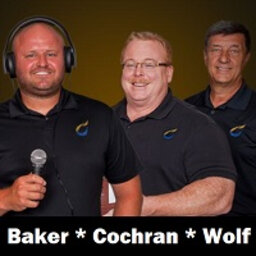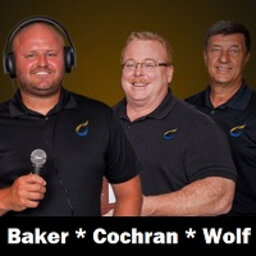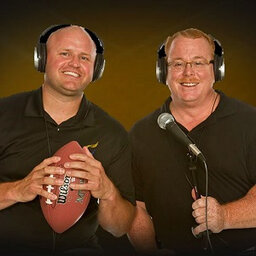Edward Taylor III of Pickerington: National Guard, Gulf War
ThisWeek Community News: Marching Orders
Central Ohio military veterans, ranging from World War II to the most recent conflicts and battles even in Yemen, share their war stories with ThisWee…Edward Taylor III, 49, of Pickerington is an Ohio Army National Guard veteran of the 1990-91 Gulf War and served during the 2003-11 Iraq War with the Ohio Air National Guard, for which he still serves as a chief master sergeant.
A Canton native, Taylor graduated from McKinley Senior High School and attended the University of Akron and Grantham University.
He has been in the Ohio Air National Guard since 1999. He was promoted to senior master sergeant in 2012 and to chief master sergeant in May.
He enlisted with the idea of becoming a pilot.
“(My) family didn’t have a huge background in the military, ... but I do remember specifically both my grandfathers and my father back in the time, during World War II, black men were stereotyped as having flat feet,” he said. “If you had flat feet, some recruiters did not allow you to get in.”
Both his grandfathers wanted to serve but weren’t able to, he said. His father also wanted to enlist but didn’t, he said.
“Both my brothers and I – all three of us served, (as did) a couple cousins. ... Not a huge military family, but definitely, it’s been a big part of the Taylor family.”
Taylor said he admired the Tuskegee Airmen, African American military pilots who had fought during WWII.
He said he had taken an African American studies class at Akron, and he learned about such notable African American military pioneers as Eugene Bullard, a pilot who had served in the French military during World War I because he wasn’t allowed to serve in the U.S. military. He knew of Benjamin O. Davis Jr., a West Point graduate and son of a brigadier general who became the first African American general in the U.S. Air Force. And he was well aware of Daniel “Chappie” James Jr., who became the first African American four-star general in 1975.
“Once I became familiar with their names and their stories, (I) definitely became a huge fan of their careers and wanted to emulate them,” he said.
He didn’t get his pilot license, but he said he found that he really enjoyed the maintenance side of aviation more.
“I enjoyed thoroughly aircraft maintenance,” he said. “I still had the chance to fly, you know, on the aircraft ... which was still a wonderful thing – a huge treat, not something everybody can say that they do. ... Being an 18-, 19-year-old kid learning how to fix and maintain a $60 million aircraft is not something that everybody does every day.”
He was an armament mechanic on Bell AH-1 Cobra helicopters during Gulf War operations Desert Shield and Desert Storm in 1990 and 1991.
Before shipping out, he said, “I really wasn’t worried because I didn’t know what to expect.”
He was on duty with the Air National Guard, working in a hangar, the morning of Sept. 11, 2001.
Even before the second plane hit the World Trade Center, Taylor said he and his fellow airmen knew it was a deliberate attack.
They knew jet aircraft were equipped with a terrain-collision-avoidance system, which keeps aircraft clear of ground obstacles, and the crash could not have been by chance.
“We all kind of stopped in our tracks” to watch the news coverage, he recalled, and one airman said, “That’s it. We’re going to war, boys.”
Camaraderie is a necessity for military personnel during a deployment, he said.
“We have to foster that camaraderie so that we can make it because we’re all human beings. ... I’ve seen young men get their ‘Dear John’ letters. I’ve seen young ladies who just gave birth two months prior and now they’re (deployed) for six months,” he said.
Members of the military get very close, he said, and he knows he always will maintain contact with those he served beside.
Taylor served overseas in Bahrain, Qatar, Afghanistan, United Arab Emirates and Turkey.
In those countries, he saw happy reunions of the local population at airports and realized “they’re just the same as you and I. ... They’re still human beings with emotion. ... All they want to do is love their people and be left alone, similar to the way a lot of us are. ... We’re all just people.”
He said he particularly enjoyed being a customer in small shops in Turkey, where the locals wanted to socialize with tea before getting down to business. But once they got to know you, they were ready to sell their goods, he said.
Conversely, he said, Bahrain wasn’t as welcoming.
“When the king or prince would fly on their jet, we had to go in the house ... go into the hangars or the buildings or whatever because he didn’t want to see us,” he said.
Taylor described the Air National Guard as a peacetime organization that effectively accomplished a wartime mission, he said.
In all of the guard’s missions, he said, the troops ultimately are serving their own communities.
“Whatever our role is, we’re taking care of home,” he said.
Taylor suggested veterans adjusting to civilian life “use the foundation of your military training and experience to look at a new challenge. ... Civilian life can be a new challenge.”
“If you’re having a struggle, go find other folks who have been out for a while,” he said, like veterans in the American Legion and Veterans of Foreign Wars. “Take the time to find your purpose in life.”
Taylor was the avionics superintendent of the 121st Air Refueling Wing at the Rickenbacker Air National Guard Base in Columbus before being promoted to aircraft-maintenance-squadron branch chief. His team maintains avionics on Boeing KC-135 Stratotankers, aerial-refueling aircraft.
Taylor said most of the aircraft are at least 50 years old and have to be retrofitted with modern technology.
“It becomes real stressful when you think that the majority of the aircraft that we fly – the KC-135 – were developed in the ’50s and built in the late ’50s and early ’60s,” he said. “Think about having an aircraft that’s already 56 years old, putting 2019 technology inside of that and expecting it to fly a mission – and it does eloquently ... thanks to the young men and women that are able to train, maintain that aircraft on a daily basis.”
Married and a father of four, his decorations include the Meritorious Service Medal Air Force Commendation Medal with one device, the Air Force Achievement Medal with two devices and a Meritorious Unit Award. State awards include the Ohio Commendation Medal with one device and the Ohio National Guard Special Service Ribbon.
Taylor gave the keynote address for the Canal Winchester Veterans Day observance in November.
This podcast was hosted and produced by Scott Hummel, ThisWeek Community News assistant managing editor, digital. This profile was written by Paul Comstock and Hummel.
In 1 playlist(s)
From the Newsroom: ThisWeek Community News
Interviews from ThisWeek Community News in Ohio. Hear the latest interviews from news-makers, politi…Social links
Follow podcast
Recent clips

AM 820 Scoreboard Show (Oct. 2, 2020)
2:02:10

AM 820 Scoreboard Show (Sept. 25, 2020)
2:02:33

AM 820 Scoreboard Show (Sept. 18, 2020)
2:02:45
 From the Newsroom: ThisWeek Community News
From the Newsroom: ThisWeek Community News